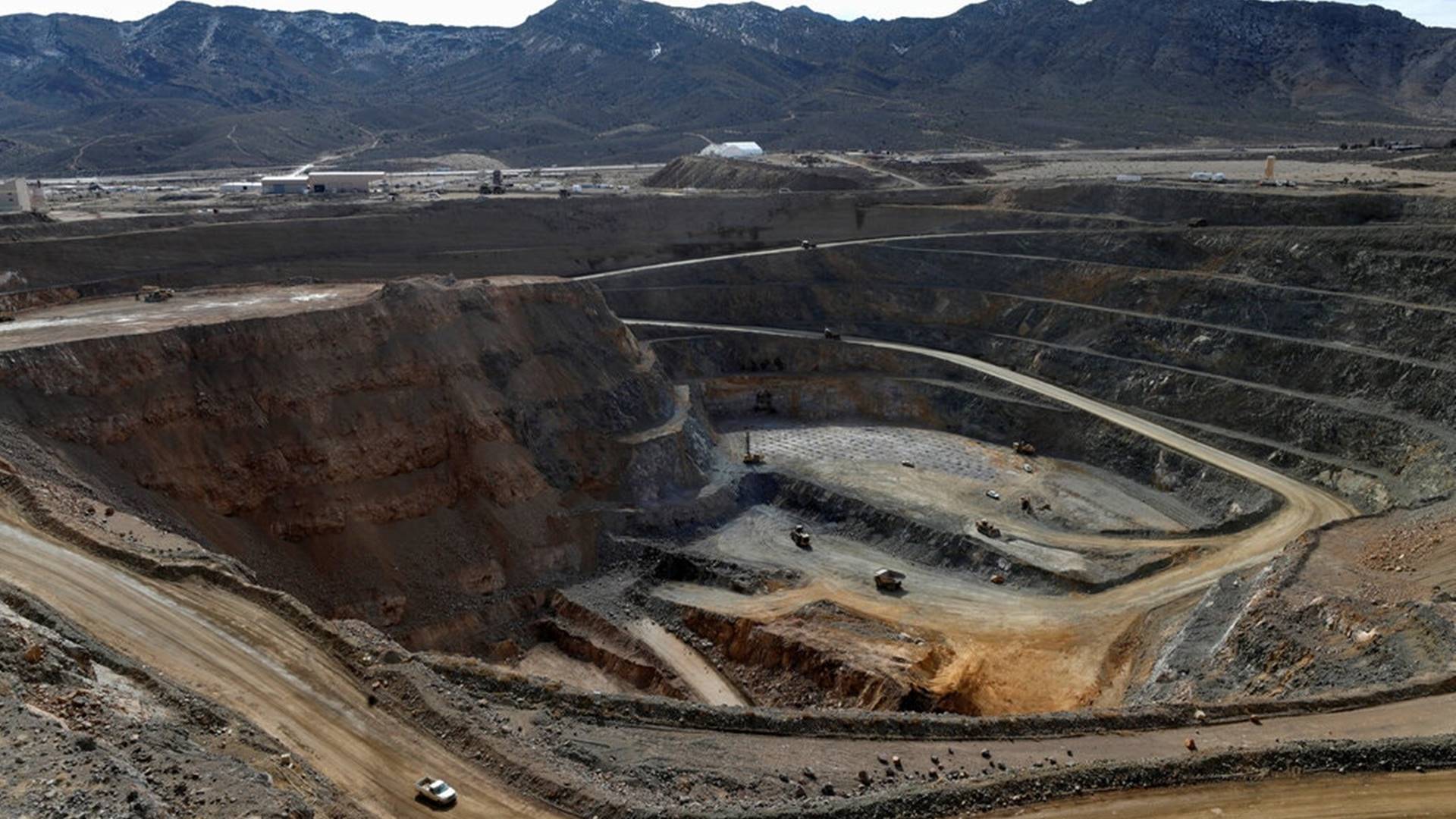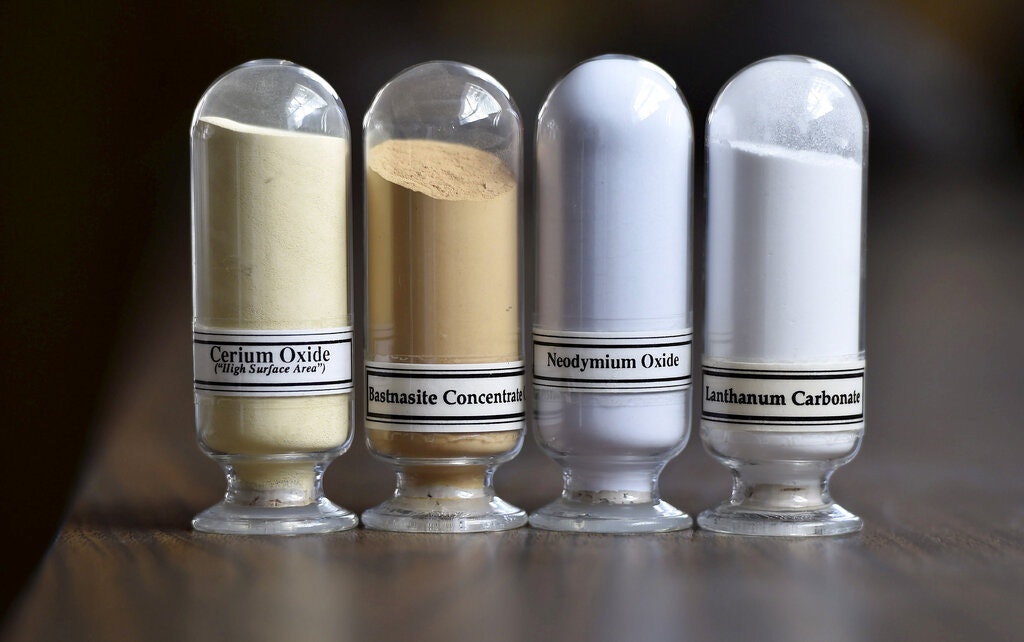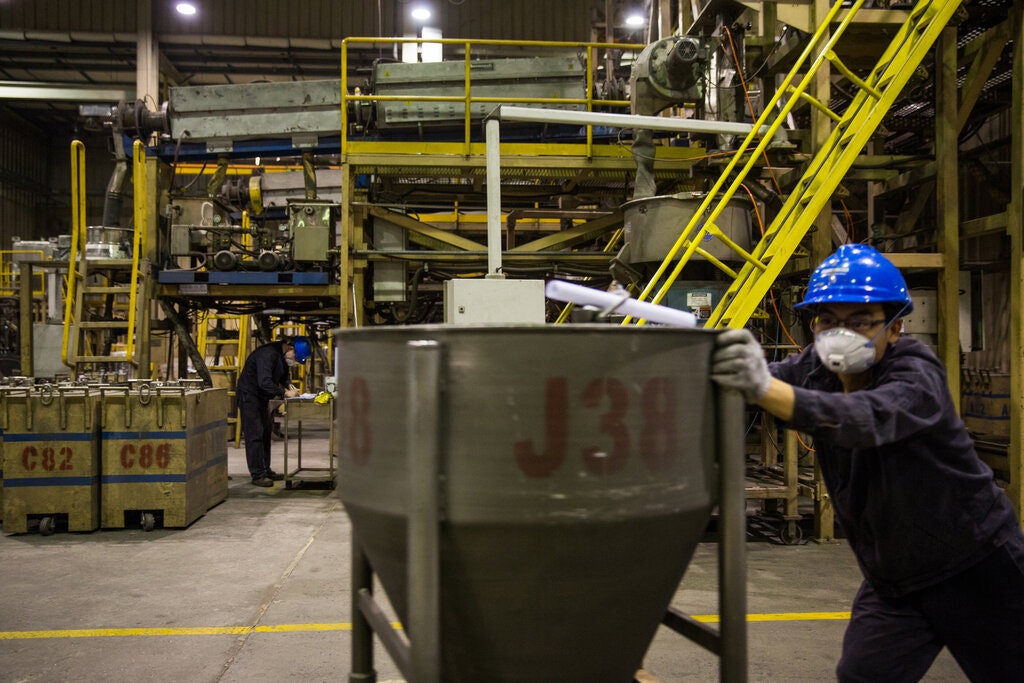The Trump administration is encouraging development of a domestic industry to produce critical metals now dominated by Chinese companies, but few players show clear long-term promise.
WASHINGTON — An effort by the Trump administration to break China’s stranglehold on the production of coveted metals vital to national security and many industries has ignited a battle among domestic mining companies and their political allies to win hundreds of millions of dollars in federal aid.
The metals, known as rare earths, are used in products as diverse as smartphones, electric vehicles and wind turbines as well as military hardware. Concern about ensuring access to them has grown more intense since the trade dispute between the United States and China, which dominates global production, escalated.
The administration’s eagerness to foster more domestic capacity has set off a scramble in the small industry, enticing a number of upstart companies with no track record of mining or refining rare earths, some of which have backing from powerful friends in Congress.
With China supplying about 80 percent of rare earths to the United States as of 2018, the Trump administration has set a goal of moving the entire supply chain of rare earth metals to American soil. And as political interest in the industry has grown, so has interest from Wall Street.

The site was acquired out of bankruptcy in 2017 by MP Materials, an American company that is working to refurbish a processing facility there that dates to the 1950s. With the facility still being modernized, the company currently sends the ores it mines to China for processing.
MP Materials announced a deal to go public in July, merging with a blank-check company and opening itself up to outside investment. MP Materials expects to raise about $490 million through the deal. The company has also faced political scrutiny over one of its investors, a Chinese company that owned nearly 10 percent of MP Materials before the deal diluted its stake.
For years, a number of fledgling companies have been working to develop sites in other states. They include Ucore in Alaska, Texas Mineral Resources Corporation in Texas, and Rare Element Resources in Wyoming. Despite sitting on rare earth deposits for years, none has broken ground or begun processing the metals in meaningful amounts.
In April, MP Materials was one of two companies selected for a Pentagon award focused on production of a narrow class of rare earth metals critical to many military devices. Funding was also awarded to Lynas Corporation, an Australian company already extracting ores from a mine in Australia, which entered its bid in partnership with Blue Line Corporation, a processing company based in Texas. The amount of the award was not disclosed.
After the announcement, Senator Ted Cruz, Republican of Texas, wrote to Secretary of Defense Mark T. Esper protesting the selection. He was joined by five other Republican lawmakers, including Senators Michael B. Enzi and John Barrasso of Wyoming, whose state is home to the Bear Lodge mine owned by Rare Element Resources. The letter argued that the Pentagon should direct funding only to companies operating entirely in the United States.

A spokesman for Mr. Cruz said the senator was only interested in building a domestic supply chain, and not pushing on behalf of any specific company. “The government should never pick winners and losers, which is a task for the marketplace,” he said in an email.
Industry experts have cautioned that the few other companies that could conceivably meet the ideal of purely domestic production are almost certainly many years away from that stage, and face considerable challenges in getting there.
“We kind of consider it to take almost a decade to bring a rare earths project from first mineral identification through to production, and that’s really considering that everything goes relatively smoothly,” said David Merriman, a manager at Roskill, a commodities analysis company based in London. “For the U.S. to really be able to support itself, it can’t really be waiting on projects that are going to take six, seven, eight, maybe up to 10 years to really come to completion.”
To help spur the industry’s development in the United States, President Trump issued directives a year ago authorizing funding for domestic companies working across five different stages of rare earth production, including refining and manufacturing finished products.
According to a Defense Department proposal obtained by The New York Times, the Pentagon has already designated at least $125 million under the Defense Production Act for funding rare earth projects through this year. By law, the department can spend $50 million in each of the five categories identified by the White House, up to $250 million. The administration has pressed Congress, so far unsuccessfully, for more.
The Energy Department is also offering nearly $160 million for rare earths research and development this year.
Last month, the Pentagon invoked the Defense Production Act to award nearly $30 million to Urban Mining Company, a small company in Texas, which has said it can manufacture finished rare earth products by recycling the metals from scrapped electronics containing them.
According to Urban Mining Company’s website, it employs around 25 people. Since 2018, it has also paid at least $240,000 to a lobbying firm run by Jeffrey A. Green, a specialist in rare earths who has also represented Ucore since at least 2011, according to the Center for Responsive Politics.
A spokesman for Urban Mining Company did not immediately respond to requests for comment.
In May, Mr. Cruz introduced a bill that would set aside $50 million for the Pentagon to fund rare earth projects every year through 2024, and would use tax incentives to let manufacturers write off double the cost of any domestic rare earths they bought. Another bill introduced in 2019 by Senator Marco Rubio of Florida would create a cooperative of rare earth companies that would act as a monopoly.

While the amounts of proposed federal aid are small by Pentagon procurement standards — a single F-35 fighter plane costs nearly $80 million — they are a significant boost to early-stage companies that have yet to break ground.
Companies like Ucore and USA Rare Earths, which owns a 70 percent stake in Texas Mineral Resources Corporation, have been aggressively making the case that they can turn their mines into success stories. Both have promoted advanced processing technologies and mounted lobbying efforts, but have yet to advance beyond an exploratory stage.
From 2019 through the beginning of this year, USA Rare Earth was represented by Jeff Miller, a prominent Republican lobbyist who served on Mr. Trump’s inaugural committee and also helped direct Rick Perry’s presidential campaign in 2016. A lobbying report from July indicates that USA Rare Earth specifically lobbied in support of Mr. Cruz’s bill.
In June, the chief executive of Ucore, Jim McKenzie, who had run the company since 2007, stepped down two months after the company lost out to MP Materials and Lynas for the grant they won. Ucore has not started mining or produced any significant revenue since its founding in 2006, according to its financial filings.
While the new funding for rare earth production is closely tied to national security interests, the military represents only a fraction of the market. To be economically viable in the long run, rare earth companies largely depend on commercial demand, which has grown slowly over time.
While the United States was once a global leader in rare earths production in the mid-20th century, it gradually ceded its dominance to China, where lax environmental regulations make it easier to undertake highly polluting mining activities. Since then, Chinese companies have also come to dominate the business of separating out the metals from ores.
After China caused a surge in rare earth prices by constricting supply in 2010, a raft of investors and companies popped up in search of commercially viable ways to build a rare earths business in the United States. But China quickly reversed course, causing prices to plummet, and undercutting efforts to build an American industry.

Rare earths companies face a slew of other hurdles in the United States. Separating and marketing the unique blend of metals compounds at any given site requires technical expertise and strategy, and new mines face a lengthy environmental permitting process, in part because of radioactive wastes from the ore that require safe disposal.
“In some sense, the first steps are relatively easy and well-understood, but the real challenge to make money is to do the separation,” said Eric J. Schelter, a professor of chemistry at the University of Pennsylvania.
Pini Althaus, the chief executive of USA Rare Earths, said that the company had had promising results processing ores in small amounts through a pilot program, and that he hoped to have its Round Top mine, near El Paso, running by 2023.
The Round Top mine must still prove it is economically viable. In part because of the relatively low concentrations of rare earth minerals at the site, the company plans to process and market around a dozen other substances present there, such as lithium, which together would account for more than two-thirds of its revenue.
Other substances the company has said it could produce, such as “yellowcake” uranium and beryllium, are known carcinogens and require expensive and complex procedures to process safely.
“Nobody has ever seen a project like it anywhere in the world,” said David R. Henderson, the president of Rittenhouse International Resources, a specialty materials trading firm.
Experts say that if the current political momentum lasts, one or more new sites in the United States could nonetheless start production, given enough time, money and tolerance for pollution.
“If you put enough money in it, something will come out the other end, that just doesn’t make it a good investment,” said Eugene Gholz, a professor of political science at the University of Notre Dame. “You could go get investors and risk investors’ money, but it’s even better if you can go get government money, in terms of stacking the deck in favor of your own profitability.”
But given current global demand for rare earths, questions remain about whether the market is ready to absorb another mining venture, and whether any company can survive long term without prolonged government investment.
“The government wants to, in the best case, change the playing field for these new producers, pick them out and give them a better shot, and maybe that will work,” Mr. Schelter said.
“Maybe a couple of them will be able to get established and have a process that is sustainable long-term, both in terms of the economy and environment,” he said. “But at this point it’s too soon and too hard to tell which, or any, of those it would be.”
NYTimes / Balkantimes.press
Napomena o autorskim pravima: Dozvoljeno preuzimanje sadržaja isključivo uz navođenje linka prema stranici našeg portala sa koje je sadržaj preuzet. Stavovi izraženi u ovom tekstu autorovi su i ne odražavaju nužno uredničku politiku The Balkantimes Press.
Copyright Notice: It is allowed to download the content only by providing a link to the page of our portal from which the content was downloaded. The views expressed in this text are those of the authors and do not necessarily reflect the editorial policies of The Balkantimes Press.
